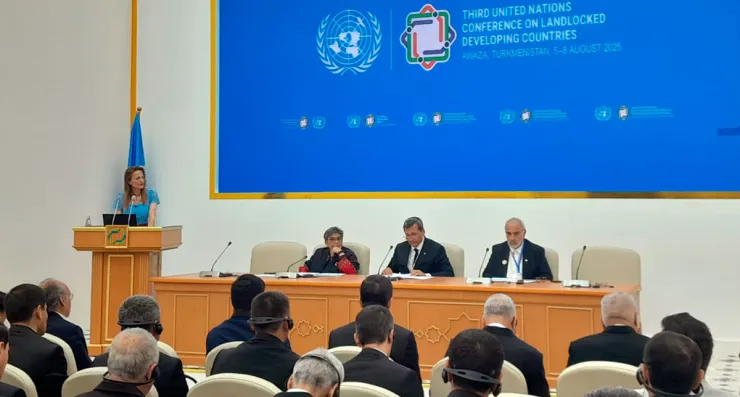The geopolitics of two rival neighboring countries plus the USA are expanding in alarming scale in the Himalayan region, Nepal as a center point.
All the revolutions in Nepal have brought some changes in political and democratic systems, with more changes in lifestyles of political leaders and their affiliates, but people's lives have been deteriorating after each revolution.
The CNN host and best-selling author Fareed Zakaria’s recently published book “Age of Revolutions- Progress and Backlash from 1600 to the Present” explores the revolutions―past and present―that define the polarized and unstable age in which we live. The writer masterfully investigates the eras and movements that have shaken norms while shaping the modern world. Three such periods hold profound lessons for today. First, in the seventeenth-century Netherlands, a fascinating series of transformations made that tiny land the richest in the world―and created politics as we know it today. Next, the French Revolution, an explosive era that devoured its ideological children and left a bloody legacy that haunts us today. The long-term impact on France was profound, shaping politics, society, religion and ideas, and polarizing politics for more than a century. Finally, the mother of all revolutions, the Industrial Revolution, which catapulted Great Britain and the US to global dominance and created the modern world.
A Colonial Debt: Why Former Powers Must Fund Landlocked Develop...

Alongside these paradigm-shifting historical events, Zakaria probes four present-day revolutions: globalization, technology, identity, and geopolitics. For all their benefits, the globalization and technology revolutions have produced profound disruptions and pervasive anxiety and our identity. And increasingly, identity is the battlefield on which the twenty-first century’s polarized politics are fought. All this is set against a geopolitical revolution as great as the one that catapulted the United States to world power in the late nineteenth century. Now we are entering a world in which the US is no longer the dominant power.
As stated by Zakaria, if we compare with Nepal, even a number of revolutions in Nepal could not bring transformative changes in the country and society as well. The accomplishments of its revolution cannot be minimally compared with the eras and movements in the Netherlands or the explosive era of the French Revolution or the industrial revolution in Great Britain and with other major revolutions of the world. All the revolutions in Nepal have brought some changes in political and democratic systems, with more changes in lifestyles of political leaders and their affiliates, but people's lives have been deteriorating after each revolution. Political turmoil, poor governance, and corruption have always been major causes of deprivation and the never-ending political instability has always hard hit the impoverished people, whose sufferings seem to be never-ending.
When the government and its institutions shy away from protecting people and to provide basic support and services, it can have detrimental consequences for the citizens, especially for the impoverished, and the way in which the government operates the systems makes their lives more difficult and causes more poverty. Racial, gender and ethnic discriminations are also causing a vicious cycle that leads to poverty and inequalities. Due to the widening gap in inequalities, rising poverty, and lack of resources, it is badly affecting performances of education, health, nutrition, food security, child mortality, maternal and child health in lower levels of society. The rising unemployment and out-migration of youth in excessive numbers have broken the backbone of the economy. The identity-based political and social structures seem to be more challenging and risky for Nepal.
In 1990, Nepal entered the process of liberalization and privatization by adopting the Structural Adjustment Programmes (SAP), implemented by the World Bank and the International Monetary Fund. This approach included specific targets related to fiscal austerity, privatization, trade liberalization, currency devaluation, retrenchment of the government and deregulation. Thereafter, the government largely curtailed its roles, and the private sector was given the lead role in the economy. The private sector took initiatives by investing in low-risk and high profitable social, financial, service and transport sectors with low priority in the key sectors of the economy such as manufacturing, agriculture, infrastructure and technology. And in the name of privatization, the government sold many public enterprises to private entrepreneurs, who failed to operate them. This failure has been one of the prime causes of lack of development of the productive sectors of Nepal.
The rising protectionism to productive sectors by powerful nations, especially neighbors has negatively affected the balance of trade of Nepal. They are leading a global slide towards subsidies, export controls and protectionism, which are against inner norms of globalization. It is a dangerous spiral of protectionism that was set in motion worldwide. On the contrary, Nepal lacks protective measures to its domestic products especially in agriculture and the manufacturing sectors and unhindered inflow of cheap Indian and Chinese goods and food items have destroyed the import substitution industries in Nepal. Nepal's primary export sectors are also very volatile due to changes and restrictions in Indian policies, which is the major importer of Nepalese products. Its quantitative restrictions on Nepalese products and tariff and non tariff barriers have destabilized Nepal’s small exports. Moreover, companies in Nepal compete in a global environment without the facilities and infrastructure with fewer opportunities to compete in the global market.
The geopolitics of two rival neighboring countries plus the USA are expanding in alarming scale in the Himalayan region, Nepal as a center point. The projects under the Millennium Challenge Corporation (MCC) of the US and Belt and Road Initiatives(BRI) of China are considered as major tools to expand their strongholds in Nepal. These two countries are replacing India’s role in Nepal in an unexpected manner. Nepalese leaderships are finding difficulties to cope with these external forces and in balancing their interferences in domestic affairs. As a result of the divided mentality of Nepalese leaderships and lack of minimum consensus on matters of external relations and national interests, external interferences are increasing in Nepal. Consequently, it has failed to receive financial assistance and FDI at the required level, which are crucial for economic development of the country.
As the concepts of who runs the world are changing according to changes in the accumulation of global power, many famous political analysts forecast that by next 10 years we will not have a bipolar, unipolar or multipolar world. There won’t be any superpower. We will only have three different world orders - global security order, global economic order, and digital world - not run by the government but by tech companies. If the government fails to govern them, the digital world will rule all. As global technology knowledge is expanding in a multiplayer way, Nepal’s technology sector is far from satisfactory. The computerization of machines and Artificial Intelligence (AI) are replacing human jobs. Robots, especially human robots, and a tech tsunami are replacing individual jobs. Tech scientists are confident that the robots would extensively replace the jobs of financial analysts, banks, doctors in considerable numbers as robots have already started to replace humans. There are growth opportunities in Nepal's information technology sector, however the present labor oriented small productive sectors seem to be major causes of backwardness. Only fast growth in technology in all sectors of economy could bring meaningful change in the economy and society as well.








































